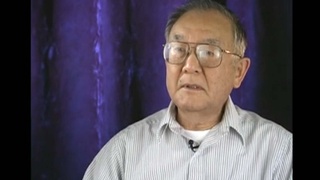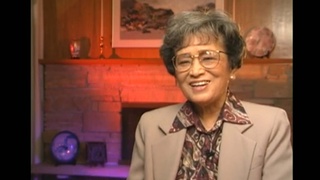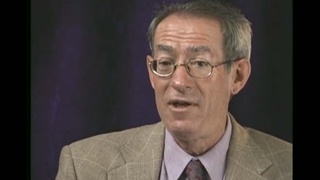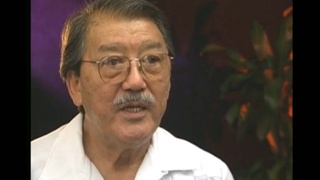Interviews
Speaker pro tem on the day the bill went to the House
Jim Wright, again, by that time was the Speaker. And he said, "Norm,"" he said, "I see the judiciary committee passed H.R. 442." And they passed it maybe in about June of that year, 1978...
I*: 1980...
Oh, wait. Let's see, the bill was signed 1988, so this would have been in 1987. And so Jim Wright said, "I want that bill on the House floor on the 200th anniversary of the signing of the Constitution." Just thinking about it makes me cry now. And he said, "I want you in the chair. You be Speaker pro tem." So he gave up the chair as Speaker of the House and had me as the Speaker pro tem chairing the house when we took up the bill. And that's a day I'll always remember.
* "I" indicates an interviewer (Tom Ikeda).
Date: July 4, 2008
Location: Colorado, US
Interviewer: Tom Ikeda
Contributed by: Watase Media Arts Center, Japanese American National Museum
Explore More Videos

Evolving History
(1929 - 2014) One of the earliest proponents behind the redress movement.

Need for Monetary Compensation
(1923–2008) One of the leaders behind the redress movement.

Erasing the Bitterness
(1923–2008) One of the leaders behind the redress movement.





Duties of the Witness Chair
Chaired the Chicago JACL's Redress Committee.







Figuring out a dollar amount for redress
Judge, only Japanese American to serve on CWRIC.
